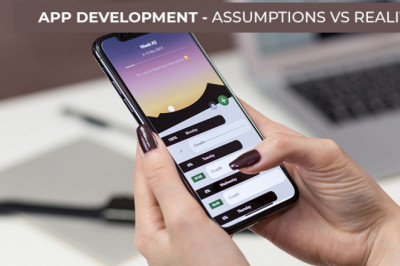views

Starting a conversation about mental health can be tough, especially if you don’t know how to broach the topic. Talking about it at work or with loved ones can be tough.
But there are things you can do and measures you can take to educate others.
Here’s what you can do:
Don’t Wait To Find The Perfect Moment
When we imagine conversations about mental health we might envisage something like a therapy session: two people alone in a quiet room, sitting face to face, giving one another their full attention.
But in reality, when was the last time you and a mate found yourselves in this scenario? It’s important that conversations happen at times and in places that feel natural.
Sometimes it’s easier to talk about our feelings when we are doing something else. Driving in the car; jogging around the park; eating breakfast in the cafe.
The more typical the setting, the less unusual and uncomfortable the conversation can feel. Having something else to do at the same time also means that the pressure is off to fill silences, maintain eye contact, and wrap things up in a particular way.
Ask Twice
We know that people often say they’re fine when they’re not.
So asking twice is an important way of starting conversations about mental health and letting people know that you really are interested. Sometimes we feel uncomfortable opening up if someone asks, “How are you?” because we think they’re just being polite.
But if that person says, “No, really, is everything OK?” we know that they’re not just going through the motions. Even if someone doesn’t feel like talking at that moment, they know you’ll be there to listen when they’re ready.
Talk About Your Own Experiences
If you want someone to open up to you it can help them feel safe and understood if you share your own feelings. You don’t have to disclose a mental health problem to them – you might not have any personal experience of one.
It could be as simple as sharing that you get down sometimes or sharing something that you’ve been worrying about recently. This will make it clear that you’re happy to talk about feelings and that there won’t be any judgement.
Approach the Elephant In The Room
If you know that someone has experienced mental illness— maybe they took some time off work recently, or spoke about it in the past—don’t be afraid to ask how they’re doing.
There are respectful ways to do this and it might not be appropriate to bring up specific details, but asking, “how are things now?” or “are you back at work?” shows that person that they have nothing to feel awkward about.
If you think someone has been acting differently it’s okay to mention that too, if it is done in a kind way. “You’ve seemed a bit quiet recently, is everything alright? I’m here if you want to talk.”
This shows that you care and opens the door for them to chat about things when they’re ready.
Phil O'Neill recounts his childhood memories and growing up in a family that was related to Dennis O’Neill, the inspiration behind Agatha Christie’s “The Mousetrap”. It’s a tragic tale of a young boy who lost his life at the hands of his foster parents. Phil believes this had an impact on the family’s mental well-being and could have been the reason for his own mental health problems.
He expresses himself through poetry and tells readers about his own struggles in his book, “Poems From the Unconscious” which will ???












